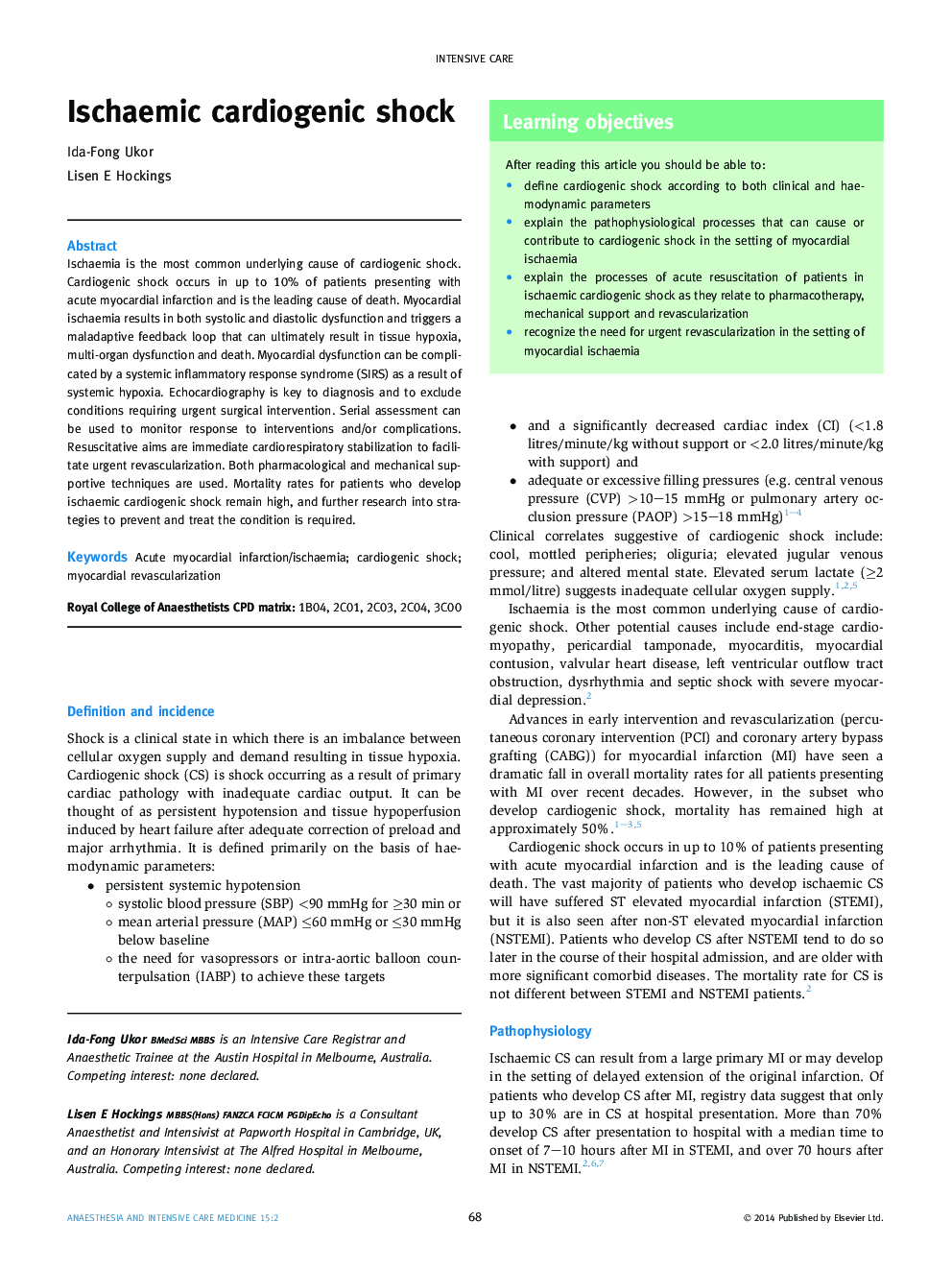| Article ID | Journal | Published Year | Pages | File Type |
|---|---|---|---|---|
| 2742465 | Anaesthesia & Intensive Care Medicine | 2014 | 4 Pages |
Ischaemia is the most common underlying cause of cardiogenic shock. Cardiogenic shock occurs in up to 10% of patients presenting with acute myocardial infarction and is the leading cause of death. Myocardial ischaemia results in both systolic and diastolic dysfunction and triggers a maladaptive feedback loop that can ultimately result in tissue hypoxia, multi-organ dysfunction and death. Myocardial dysfunction can be complicated by a systemic inflammatory response syndrome (SIRS) as a result of systemic hypoxia. Echocardiography is key to diagnosis and to exclude conditions requiring urgent surgical intervention. Serial assessment can be used to monitor response to interventions and/or complications. Resuscitative aims are immediate cardiorespiratory stabilization to facilitate urgent revascularization. Both pharmacological and mechanical supportive techniques are used. Mortality rates for patients who develop ischaemic cardiogenic shock remain high, and further research into strategies to prevent and treat the condition is required.
